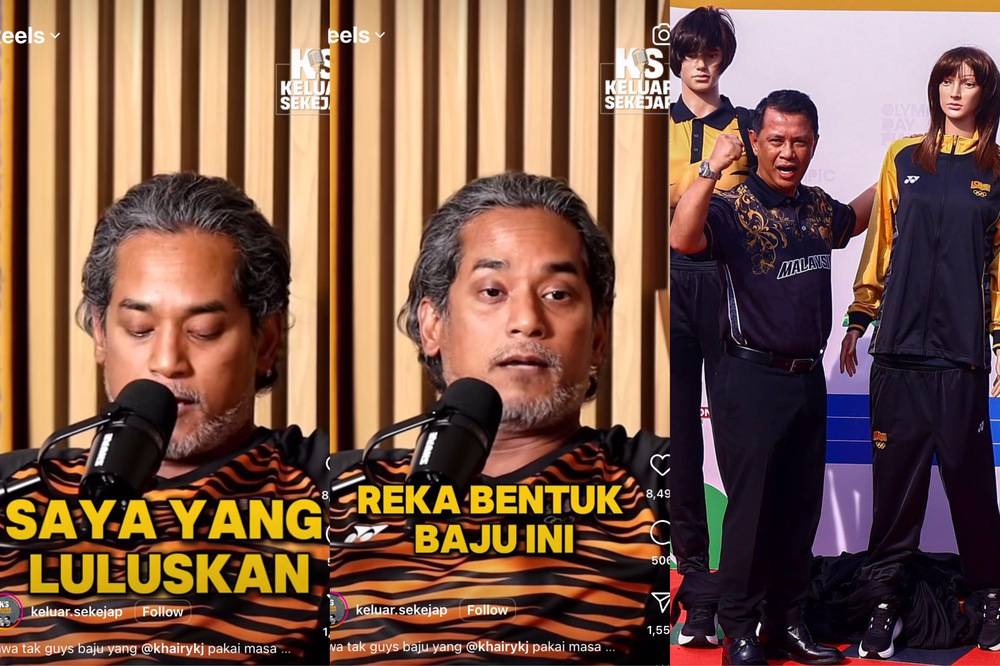With the implementation of Undi18, youth voters should be a force to be reckoned with at the ballot box. However, a rising political apathy among them is a worry. Can better political education encourage more young people to go out to vote?
WITH Undi18 now in effect, the country’s youth will be huge force to be reckoned with in the next general election. However, this power can only have a significant impact if those who wield it choose to exercise their right to vote.
The recent Sarawak and Melaka polls saw a low overall voter turnout, and it would be worrying if this is an indicator of how future elections will play out. There is concern especially that political apathy among the youth in Malaysia is high.
During the 14th General Election (GE14) in 2018, those aged between 21 and 39 made up 41% of the 14.9 million registered voters, and strongly influenced the outcome of the polls. However, continuous political tumult since then and disappointment in political leaders may have contributed to the disillusionment and subsequent indifference to politics among youth.
In Merdeka Center’s National Youth Survey 2021, which polled youth between 18 and 30, a majority of the respondents had a discouraging view of the nation’s political scene. The survey found that 66% of young people believed that public officials and politicians “do not care” about what they think. Furthermore, 70% of respondents said they were uninterested in information related to politics. And 78% felt that politics and government seem to be complicated and that they “can’t really understand what’s going on”.
Is this political apathy due to a lack of understanding of the electoral system and awareness of the power of voting? If so, can the apathy then be mitigated with increased political literacy among the youth? In other words, do we need better voter education for young people?
Apathy and distrust
Notably, while there is political apathy among the youth, it does not necessarily mean that they are not interested in social and community well-being.
During the recent floods, many of those who volunteered their services were young people from diverse ethnic, socioeconomic and educational backgrounds. When Covid-19 struck, many of those taking part in the #KitaJagaKita campaign to assist those in need were youth.
The Merdeka Centre survey also recorded this observation: while two-thirds of youth were interested in volunteerism and community- building initiatives, more than two- thirds of respondents were not interested in politics. Can our youth be convinced that their concern for community welfare can be further empowered through political participation? Conversely, is their choice of political indifference a valid one?
Political analyst Dr Oh Ei Sun seems to think so.
“Political apathy is a legitimate political choice of any voter and must not be unduly discouraged,” he says.
Institute for Democracy and Economic Affairs (Ideas) senior manager of research Aira Azhari believes that while some youth are apathetic about electoral politics, this does not necessarily mean an apathy towards politics per se.
“Many of the causes championed most by the youth such as climate change and fighting corruption and inequality are all political causes which cannot be solved through non-political means alone,” she says.
According to Aira, apathy towards electoral politics reflects a wider distrust of politicians and government, which she says is not surprising.
For now, it remains to be seen how this apathy will translate into electoral outcomes.
Strong sense of values
International Islamic University Malaysia political scientist Dr Danial Mohd Yusof believes that what Malaysian youth have witnessed over the past few years of local politics may have been in conflict with their sense of values, further fuelling political apathy within the group.
“The youth are likely to be less realistic and instead are mobilised by idealism, morality and social justice. They may perceive the lack of such ideals in Malaysian politics in the past two years or so.
“They may have also in the past felt disenfranchised and lacked avenues for meaningful activism,” he says.
He predicts that with Undi18, there may be a change in the beginning when the country’s youth may feel more included and represented and show increased activism. However, whether this enthusiasm is sustainable depends on the facilitating aspects of the Malaysian political ecosystem for our youth.
Danial suggests the incorporation of an increasingly mature and complex curriculum on patriotism and civic development, including voter responsibility, through the schooling and higher education experience.
The education can be supplied by various providers including ministries and institutions related to education, higher education, youth and sports and unity as well as civil society organisations, he says.
“The question we may ask is: Are our educators sufficiently educated or trained to impart such political education constructively or will this process itself become politicised in terms of both provider and content?”
In Aira’s view, the best platform to provide youth voter education and training is through civil society groups.
“Political parties themselves should also be doing this through their own think tanks, similar to the German model,” she adds.
Oh suggests that voter education can be a part of the civics, morals, or social studies classes in school.
“It should just focus on the technicalities of elections, such as the procedures involved in voting and counting votes, and not so much on how to vote wisely, else political bias will kick in,” says the senior fellow at the Singapore Institute of International Affairs.
Increasing political literacy
Universiti Malaya sociopolitical analyst Dr Awang Azman Awang Pawi proposes that political education be included in the history syllabus. Political education should include the importance of voting, how voting impacts and contributes to society, and how elections are carried out, he says.
“At a forum recently, I saw that a few young people who attended did not understand how the electoral system works. For example, the difference between the responsibilities of an assemblyman and a member of Parliament,” says Awang Azman, who explains that a good grounding in political education can help clear up such confusion.
“Political education needs to be done clearly and with an explanation of how the electoral system functions. Political education and the responsibilities of the electorate need to be included in the current education system, like history classes,” Awang Azman tells Sunday Star in a telephone interview.
Parents play an important role in educating their children about the impact of politics on society from a young age, adds Awang Azman. The media also have a responsibility to spread information on the importance of voting among the public. Meanwhile, political parties and agencies must hold roadshows, briefings, forums and various activities to instil political literacy among the country’s youth, he says.
The difficulty in providing political education in Malaysia would be doing so without bias, or having any particular group or individual teaching about political literacy without imposing their personal ideology, says Awang Azman.
“At times, the Election Commission may lean towards the incumbent government, while school-based education may be influenced by the teachers’ political ideology. That is inevitable, but the extent to which the system can guarantee professionalism in these issues, and to provide a neutral education responsibly and with integrity will be one of our biggest challenges,” he says.
Awang Azman explains that if the right amount of awareness can be provided from a young age, this will help to instil long-term interest in young people.
This includes awareness of individual rights and the awareness that a single vote can change the political landscape of an area, and in fact can even impact the political landscape at a national level.
“Being involved in politics does not mean that a person has to join a political party or be active in the political arena. However, we need to be aware of the current political climate so that everyone has a clear perception of what is happening domestically and in their own areas.
“Political literacy can be installed with an approach that is prudent and more knowledgeable, to attract our youth,” he says.


